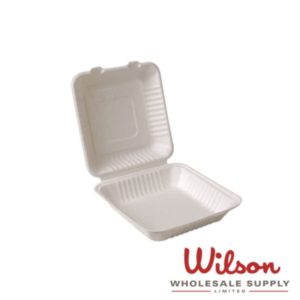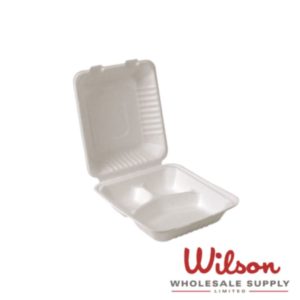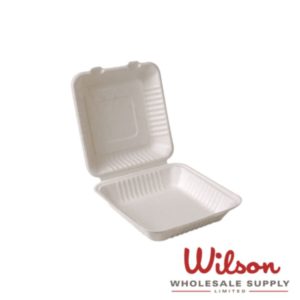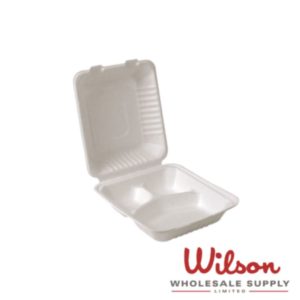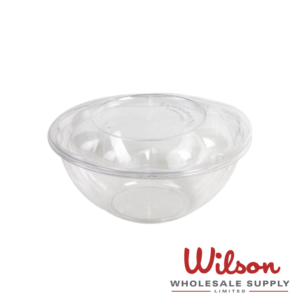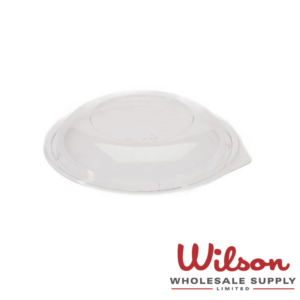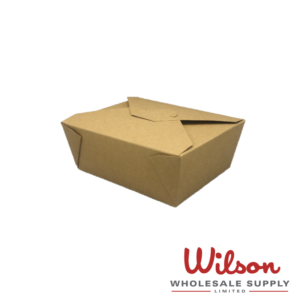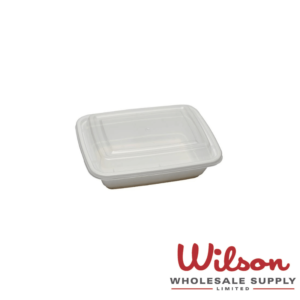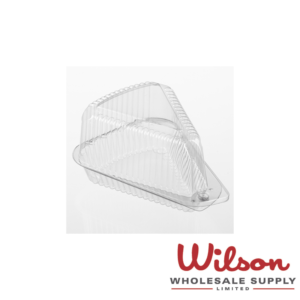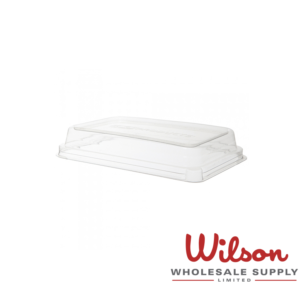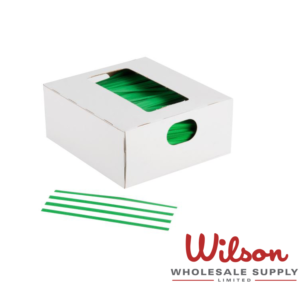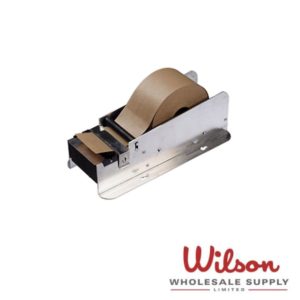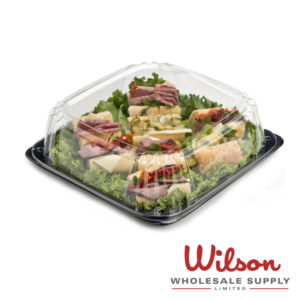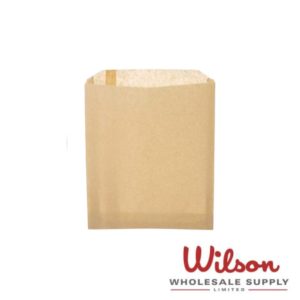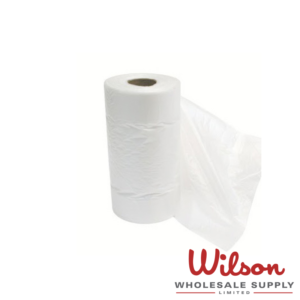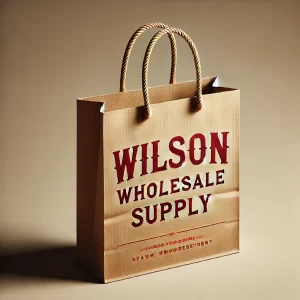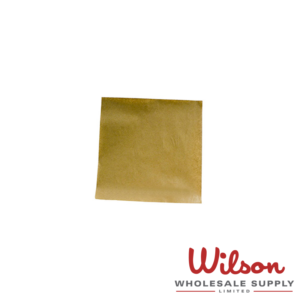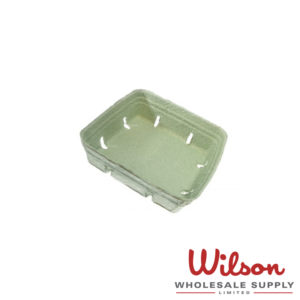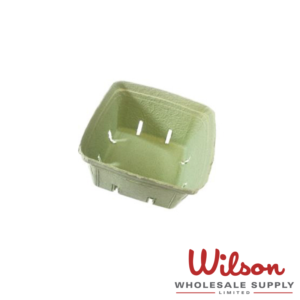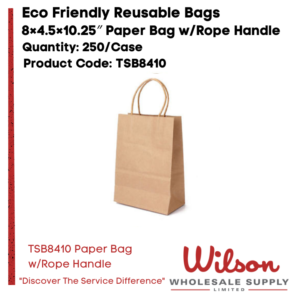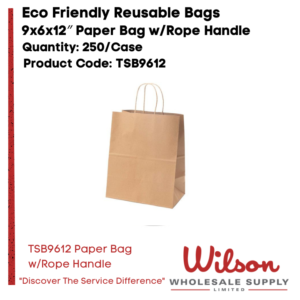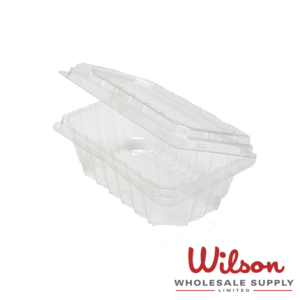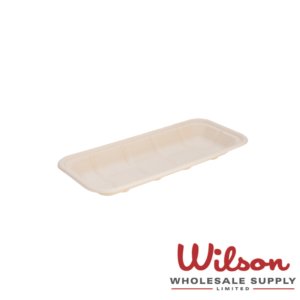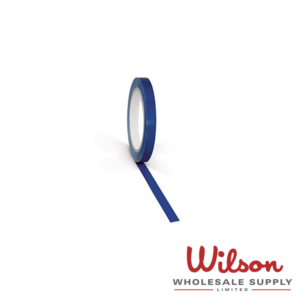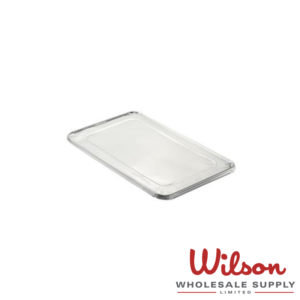Food Packaging
Food Packaging Supplies
Wilson Wholesale Supply, a trusted and reliable provider of food packaging supplies, is committed to serving the needs of restaurants, bakeries, coffee shops, and delis in the Fraser Valley and beyond. We proudly offer a variety of high-quality products including our Eco Foodie Box, an innovative and eco-friendly solution for food packaging. The Eco Foodie Box is not just a product, but a testament to our commitment to sustainability, presenting a compostable eco friendly option to our environmentally conscious clients.
Food Packaging Suppliers
Our 12 x 12 Foil Insulwrap Sheets are another notable product, offering an ideal solution for businesses that need to keep their food warm and fresh. They’re perfect for wrapping anything from hot dogs to burritos. Additionally, we provide general Foil Wrap supplies that are versatile, practical, durable, and indispensable in any food service setting. These products, including our poly and zip bags, exemplify our commitment to providing quality food packaging supplies that meet a variety of needs.
Poly Bags
Furthermore, our All-Purpose Film with Cutter Box is a go-to solution for preserving and protecting food items. This user-friendly product makes storage, shipping, and organization in the kitchen effortless. And if you’re in the market for something to securely package and display your delicious pastries or desserts, look no further than our Cake Wedge. It’s ideal for bakeries and coffee shops wanting to showcase their creations while maintaining the freshness and integrity of their goods.
Wilson Wholesale Supply offers FREE Local Deliveries in the Fraser Valley!!!
Food Packing Supplies 🚚 FREE Local Delivery in the Fraser Valley! 🚚
Pizza Boxes
We understand that each business has unique needs and requirements when it comes to food packaging materials. This is why we also supply specialized packaging options such as pizza boxes, food bags, and candy packaging. All our products are designed with a strong focus on quality, utility, and cost-efficiency. Wilson Wholesale Supply stands out as a leader amongst food packaging companies due to our diverse product range and our dedication to customer satisfaction.
Food Industry Essentials: Streamlined Packaging Solutions
As a food packaging supplier, we recognize the necessity for convenience in your procurement process. With Wilson Wholesale Supply, you can easily find a ‘restaurant supply store near me’ with our extensive presence in the Fraser Valley. We offer free local delivery, ensuring that your business never runs out of stock or of essential supplies. You can count on us to deliver the food packaging supplies you need when you need them, enabling you to focus on what matters most – your business.
Sweet Solutions: Candy Packaging & Food Containers
At Wilson Wholesale Supply, our goal is to exceed our customers’ expectations in every possible way. We are not just a supplier of food packaging products, but a reliable partner to support you in your journey to success. We invite you to explore our range of products and discover the difference in service that sets us apart from other food packaging suppliers. We look forward to providing you with all your food packaging supply needs in the Fraser Valley and beyond.
Food Packing Supplies Chilliwack: Quality and Variety for Your Needs
Wilson Wholesale Supply is recognized not just locally, but also as a major supplier of commercial food packaging supplies beyond the Fraser Valley, BC. Our extensive network of wholesale packaging suppliers allows us to fulfill the diverse needs of the global food industry here in BC. We offer everything from thermal insolated containers that keep food warm to eco-friendly coffee cups, catering to a variety of requirements. Clients around the Fraser Valley rely on us for our steadfast commitment to quality and timely FREE Local deliveries, reinforcing our status as a dependable partner in the food Packing industry.
Disposable Food Packaging Supplies: Convenience and Quality Combined
When it comes to wholesale packing supply, one size doesn’t fit all. That’s why we offer a diverse range of styles of food containers to suit various needs. Whether you run a bustling coffee shop or a high-end restaurant, our packaging solutions are designed to meet the unique requirements of different food establishments. Our Eco containers are perfect for takeaways, while our environmentally-conscious coffee cups add that extra touch to your customer’s morning routine.
Sustainability: A Core Value
In today’s world, sustainability is more than just a buzzword; it’s a responsibility. At Wilson Wholesale Supply, we take this responsibility seriously. Our range of eco-friendly food containers is a testament to our commitment to a greener planet. We collaborate with wholesale packaging vendors who share our values, ensuring that our products not only meet and maintain but exceed environmental standards.
Showing 1–16 of 29 resultsSorted by latest
-

8x8x3Compostable Sugarcane Clamshell
-

8x8x3Compostable Sugarcane Clamshell 3 Compartment
-

9x9x3Compostable Sugarcane Clamshell
-

9x9x3Compostable Sugarcane Clamshell 3 Compartment
-

Natural Kraft Salad Bowl
-

Round Salad Bowl
-

Clear Lid for 18-32oz Salad Bowl
-

Brown Kraftbox
-

Microwavable Container with Lid
-

Cake Container
-

WorldView 10×7 Rec Base
-

WorldView 24oz Rec Lid
-

Hot Food Containers
-

1/4 x 4 Twist Tie Green
-

Gum Tape Dispenser
-

Square Platter Combo
Check Out Our Related Products
-

Kraft Paper Bag – Greaseproof
-

10 by 10 by 10 Paper Bag w Rope Handle
-

10 by 5 by 13 Paper Bag w Rope Handle
-

12mic Produce Roll Bag
-

Premium 13 by 7 by 13 Paper Bags w Rope Handle
-

15 x 15 Kraft Butcher Sheets
-

3 Pulp Green Produce Packaging
-

5 Pulp Green Produce Packaging
-

8 by 4.5 by 10.25 Paper Bags w Rope Handle
-

9x6x12 Paper Bag w Rope Handle
-

Berry Clamshell APET
-

Compostable Grocery Trays
-

Blue PVC Produce Tape
-

Foil Board Lid
-

Foil Container
-

Foil Lid for Half Size Steam Table Container
“Discover The Service Difference”
| Pros | Cons |
 Protection: Packaging protects food from physical damage, contamination, and tampering during transportation and storage. Protection: Packaging protects food from physical damage, contamination, and tampering during transportation and storage. |
 Environmental Impact: The production and disposal of food packaging can have significant environmental impacts. This includes resource use, pollution, and waste, particularly when the packaging is not recyclable or compostable. Environmental Impact: The production and disposal of food packaging can have significant environmental impacts. This includes resource use, pollution, and waste, particularly when the packaging is not recyclable or compostable. |
 Preservation: Packaging can help to extend the shelf life of food by protecting it from environmental factors such as heat, light, moisture, and bacteria, which can lead to spoilage. Preservation: Packaging can help to extend the shelf life of food by protecting it from environmental factors such as heat, light, moisture, and bacteria, which can lead to spoilage. |
 Cost: Packaging adds to the cost of food products. While some of this cost is passed on to the consumer, it can also reduce the profit margin for food producers. Cost: Packaging adds to the cost of food products. While some of this cost is passed on to the consumer, it can also reduce the profit margin for food producers. |
 Information: Packaging provides a space for manufacturers to include important information about the food, including ingredients, nutritional facts, allergen warnings, and cooking or preparation instructions. Information: Packaging provides a space for manufacturers to include important information about the food, including ingredients, nutritional facts, allergen warnings, and cooking or preparation instructions. |
 Health Concerns: Some types of food packaging materials have been associated with health risks. For example, certain plastics can leach harmful chemicals into food, particularly when heated. Health Concerns: Some types of food packaging materials have been associated with health risks. For example, certain plastics can leach harmful chemicals into food, particularly when heated. |
 Marketing: Packaging plays a significant role in branding and marketing. It can make a product stand out on the shelf and communicate the brand’s message to consumers. Marketing: Packaging plays a significant role in branding and marketing. It can make a product stand out on the shelf and communicate the brand’s message to consumers. |
 Limited Shelf Visibility: In retail environments, packaging can sometimes obscure the actual product, making it hard for consumers to assess the quality of the food they are buying. Limited Shelf Visibility: In retail environments, packaging can sometimes obscure the actual product, making it hard for consumers to assess the quality of the food they are buying. |
 Portion Control: Packaging can help with portion control by providing pre-measured servings, which can help to reduce food waste and assist consumers in maintaining a balanced diet. Portion Control: Packaging can help with portion control by providing pre-measured servings, which can help to reduce food waste and assist consumers in maintaining a balanced diet. |
 Waste: Packaging contributes to the overall volume of solid waste. Even when it’s disposed of properly, it can take up a significant amount of space in landfills. Waste: Packaging contributes to the overall volume of solid waste. Even when it’s disposed of properly, it can take up a significant amount of space in landfills. |
 Convenience: Many types of food packaging are designed for convenience. For example, resealable packaging allows consumers to easily store leftovers, while microwave-safe packaging makes preparation quick and easy. Convenience: Many types of food packaging are designed for convenience. For example, resealable packaging allows consumers to easily store leftovers, while microwave-safe packaging makes preparation quick and easy. |
 Over-Packaging: Sometimes, food products are over-packaged, which can lead to unnecessary waste. This is often the case with individually wrapped items sold in larger, also wrapped, packages. Over-Packaging: Sometimes, food products are over-packaged, which can lead to unnecessary waste. This is often the case with individually wrapped items sold in larger, also wrapped, packages. |
People Also Ask
Q: What materials are needed for food packaging?
A: Food packaging materials can vary greatly depending on the specific requirements of the product. Common materials include various types of plastic, paper, cardboard, glass, aluminum, and increasingly, biodegradable and compostable materials. The choice of material can depend on factors such as the nature of the food, shelf life, and transportation needs.
Q: What are the 4 types of food packaging?
A: The four main types of food packaging are primary, secondary, tertiary, and quaternary packaging. Primary packaging is the material that first envelops the product and holds it – this is usually the package that the consumer uses. Secondary packaging groups primary packages together (like a box of cereal bars). Tertiary packaging groups secondary packages together for handling and transportation purposes. Quaternary packaging is an additional layer used for transportation, especially for bulk handling like palletization.
Q: What is the cheapest packaging material for food packaging?
A: The cost of packaging materials can depend on a number of factors, including the quantity ordered, the source of the materials, and the manufacturing process. However, in general, plastic and paper are often among the cheapest options for food packaging due to their availability and ease of production.
Q: What type of food packaging is best for food packaging?
A: The best type of food packaging depends on the specific needs of the food product. For example, perishable goods may require vacuum-sealed plastic packaging to extend shelf life, while baked goods may be best served by cardboard or paper packaging that allows some air circulation. Considerations include the food’s shelf life, transportation needs, and environmental impact, as well as cost and aesthetic appeal.
Q: What are the most popular types of food packaging?
A: Some of the most popular types of food packaging include plastic containers (like those used for takeout), cardboard boxes (like those used for pizza), cans (for beverages and preserved foods), glass jars (for sauces, spreads, and preserves), and flexible packaging like plastic bags and wrap. The popularity of a type of packaging can depend on the type of food, cultural practices, and consumer preferences.
Q: What type of plastic is used for food packaging?
A: Several types of plastic are used for food packaging. These include Polyethylene Terephthalate (PET), High-Density Polyethylene (HDPE), Low-Density Polyethylene (LDPE), Polypropylene (PP), and Polystyrene (PS). Each type of plastic has different properties that make it suitable for different types of food products.
Q: What are the safest food packaging materials?
A: The safety of food packaging materials is determined by their potential to leach harmful substances into the food they contain. Glass is often considered one of the safest food packaging materials because it is non-reactive and doesn’t leach any chemicals. Stainless steel is also safe for food contact and is often used in professional kitchens. As for plastics, those marked with recycle codes 2 (HDPE), 4 (LDPE), and 5 (PP) are generally considered safe for food. However, it’s always important to use food-grade packaging materials and follow any usage guidelines, such as avoiding high heat with certain types of plastic.

